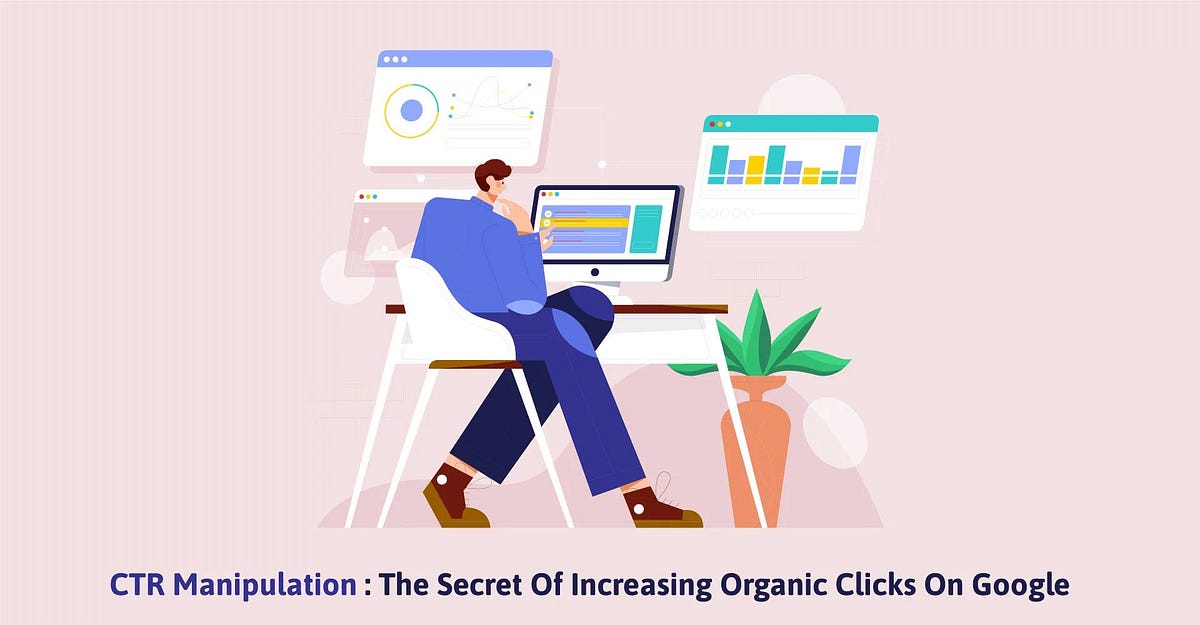Exploring the Partnership Between CTR Control Providers and Individual Behavior
In the world of digital advertising, the impact of click-through rate (CTR) control solutions on individual actions remains a facility and fascinating topic. As on-line systems significantly depend on CTR metrics to measure the success of content, items, and solutions, comprehending exactly how these adjusted prices impact customer interaction and decision-making procedures is vital. The interplay between CTR control and customer behavior questions regarding credibility, reliability, and the ethical implications of such techniques. By exploring the complex relationship in between CTR control solutions and customer habits, appealing understandings emerge that might improve our understanding of digital advertising strategies and their effects on customers.
Impact of CTR Manipulation on Behavior
Assessing the influence of Click-Through Price (CTR) control on user behavior reveals important insights into the characteristics of online interaction. CTR manipulation involves unnaturally inflating the number of click a specific link or promotion to deceive users and internet search engine. This method can lead to an altered understanding of a website's appeal or importance, inevitably affecting individual actions.

Moreover, CTR manipulation can alter the data made use of by formulas to individualize user experiences. This can result in individuals being served web content that does not align with their preferences or rate of interests, inevitably bring about a decline in individual satisfaction and interaction. Comprehending the influence of CTR control on customer behavior is essential for maintaining transparency and count on on-line communications.
Individual Engagement With Manipulated CTR
Customer interaction with controlled CTR data commonly leads to manipulated understandings of on-line web content appeal and relevance. When customers connect with web content based on synthetically inflated Click-Through Rates (CTR), they may think that particular info, products, or services are much more preferred or trustworthy than they actually are. This can cause users making decisions based on deceptive data, bring about possibly negative end results.
Involvement metrics like likes, shares, remarks, and time invested on a web page are often influenced by CTR manipulation. Users may be more likely to involve with material that shows up to have higher interaction prices, better bolstering the cycle of skewed understandings. Consequently, content creators and marketers may focus on creating web content that creates high CTR as opposed to concentrating on developing really useful and pertinent product.

Psychological Effects of CTR Adjustment

Additionally, the mental results of CTR control can additionally materialize in altered decision-making procedures. Users may be a lot more likely to click content exclusively based upon its regarded appeal, rather than its real value or significance to their requirements. This behavioral shift can result in a surface involvement with on-line content, where users might neglect premium yet much less popular offerings for those with unnaturally improved CTRs.
Fundamentally, the mental implications check this site out of CTR control highlight the value of keeping openness and credibility in online communications to promote authentic customer involvement and count on.
Honest Considerations in CTR Adjustment
CTR manipulation elevates worries about deceiving customers, misshaping data analytics, and jeopardizing the reputation of online content. By unnaturally blowing up CTR, individuals may be misguided right into clicking on web links or ads they would certainly not have picked otherwise, leading to an insincere online experience.
One more honest element to ponder is the fairness of adjusting CTR to obtain an unreasonable advantage over competitors. Taking part in such techniques not just violates principles of fair game yet additionally weakens the trust that customers place in on-line platforms. It is crucial for companies and digital marketers to support ethical criteria in their practices to make sure openness, reliability, and long-term sustainability in the on the internet setting.
Effects for Digital Advertising And Marketing
CTR manipulation can lead to manipulated information analytics, misdirecting marketing experts into thinking that their campaigns are executing far better than they actually are. When individuals recognize that CTRs have actually been manipulated, it can deteriorate count on in the brand, leading to lasting adverse repercussions for consumer commitment and brand name reputation.
Additionally, using CTR manipulation solutions can develop an unreasonable competitive landscape, where companies that engage in such methods acquire an artificial advantage over those that abide by ethical marketing standards. This can stifle development and imagination in digital advertising and marketing, as success comes to be more regarding adjustment tactics than delivering genuine value to customers. Inevitably, the ramifications of CTR control for digital advertising and marketing extend beyond temporary gains, influencing the overall sustainability and reliability of advertising and marketing efforts in the digital world.
Verdict
To conclude, the partnership in between CTR manipulation solutions and user habits is complicated and complex. The effect of CTR control on visit homepage habits, individual involvement with adjusted CTR, psychological effects, honest factors to consider, and effects for digital advertising all play a role in shaping this relationship. Understanding these characteristics is essential for online marketers and researchers alike in order to navigate the ethical effects and optimize the effectiveness of their digital advertising techniques.